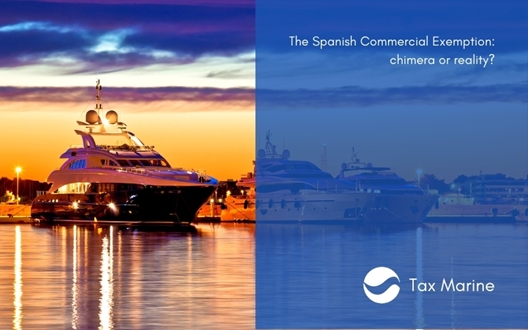It is well known in the yachting industry that there is the possibility to benefit from an attractive VAT exemption regime, in place either in France or Italy, on certain yacht supplies and works. These are the so-called French and Italian Commercial Exemption (FCE & ICE) tax regimes. The requirements to be eligible for VAT exemptions are set out respectively in Article 262 II 2nd, 5th and 6th of the French General Tax Code and in Article 8-bis, letter a) and letter d) of Presidential Decree 633/1972. In both cases, with slight differences, the regulations impose to fulfill a certain number of conditions. In the French case, the conditions to benefit from the FCE are the following:
· The overall length must be over 15 meters
· The yacht must be registered as commercial
· The company owning the yacht must employ a permanent crew.
· The yacht must be used exclusively for commercial purposes (for example, under a charter agreement).
· 70% of the trips must be made outside French waters.
Italy imposes a similar requirement regarding the number of voyages to be made on the high seas (i.e., beyond 12 nautical miles). In both cases, the conditions must be fulfilled for each tax period.
The above regimes have their roots in the exemption laid down in Article 148 of Council Directive 2006/112/EC, the EU VAT Directive, which states that “Member States shall exempt the supply of goods for the fueling and provisioning of vessels used for navigation on the high seas and carrying passengers for reward or used for the purpose of commercial, industrial or fishing activities…”.
So would a similar VAT regime be possible in Spain?
The Spanish VAT Law 37/1992 transposes the principles of the EU VAT Directive in its Article 22, establishing that the supplies, constructions, transformations, repairs, maintenance, freight and rental of vessels used for navigation on the high seas and carrying passengers for reward or used for the purpose of commercial, industrial or fishing activities shall be exempt from VAT.
Further on, the same article stipulates that navigation on the high seas shall mean that which begins in the territorial waters of Spain and ends outside the country or vice versa. Besides, it is established that in order to be eligible for VAT exemption, the number of voyages on the high seas must add up to at least 50% of the total navigation of the vessel.
Although it seems that a similar VAT exemption could be applicable in Spain to commercial yachts, Article 22 of the Spanish VAT Law establishes an important limitation: “The exemption shall not be applicable in any case to vessels engaged in sport, leisure or private use activities”. It is on this basis that Spanish tax authorities deny the application of the exemption regime to commercial yachts. This official approach is supported by several tax rulings.
It is important to remark that sometimes local Spanish suppliers provide yacht captains or senior crew with statements offering the possibility to benefit from VAT-exempt supplies on goods or services, on the basis of the aforementioned Article 22. However, as explained above, that is not a possibility at the moment in Spain. Accepting VAT-exempt supplies on the basis of that statement would be a situation that would involve future VAT issues for the yacht. Although in a first stage it would be the local supplier who might be facing a VAT issue with the Spanish tax authorities, in the long term and based on the statement signed by the yacht captain, the ultimate responsible for the VAT payment would be the yacht. Therefore, despite being an attractive option, it is important to bear in mind that at the moment this is not feasible in Spain.
In any case, we understand it would be very interesting for the Spanish yachting industry to lobby in order to amend the current situation. We consider that, based on a correct interpretation of the spirit of the EU VAT Directive, there would be room for a Spanish Commercial Exemption without the need for any amendment of the Spanish VAT Law. The key point, the interpretation of the activity carried out by commercial yachts as something different from private use. In this regard, there is still a lot of work to be done by the national yachting associations.
We understand that having a similar tax regime to the one in place in France or Italy would open multiple possibilities for the growth of the Spanish industry, both for shipyards and onshore local suppliers, combined with other existing customs mechanisms, such as the Inward Processing Regime.
You can also read similar publications in our Knowledge Bank.






